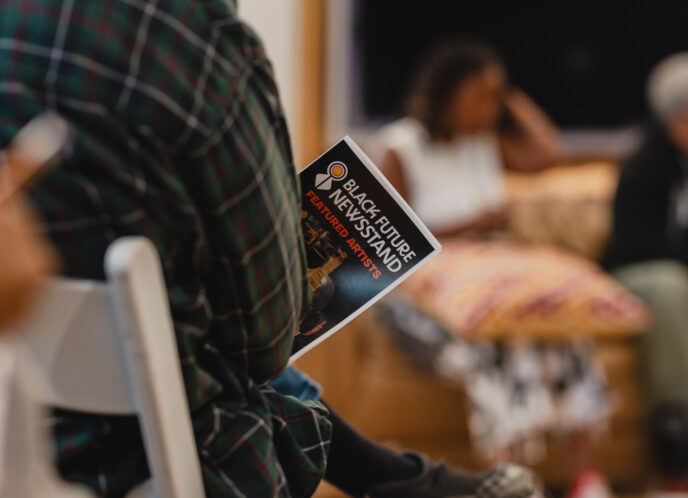Recent coverage and public discussion of the government's Internet and telephone spying leaves a major question unanswered: How, given what we know, does this trashing of privacy affect activists, particularly women and people of color?
The question is important because privacy is at the heart of a free and democratic society and, like much of this stunning news, it has been framed in a frivolous way by our media and politicians. Given the dangers of the world — their argument goes — is your right to talk to your friends, shop, or read texts without surveillance more important than protecting your life?
That kind of personal privacy is important but it isn't the main issue. In the constitution, privacy goes hand in hand with the "right of petition" — the right to demonstrate, organize and speak out against the government and its policies. You have the right to meet, plan and organize without having the government looking over your shoulder (or tracking your calls and stealing your email) because all power in the government's hands can and eventually will be abused without strong "checks and balances".
While the Obama Administration is working over-time to cloud the facts in disinformative smoke and partial information, we now know enough to say that privacy in this country has been completely suspended.
The revelations of whistle-blower Edward Snowden, still tumbling out every day, show that for several years the government has been capturing all our on-line and telephone communications. The National Security Agency has forced telephone giant Verizon to give up records of all phone calls — people, places and times — under a court order so secret the telephone giant can't even confirm it. It's probable that several other phone companies (land and cell) have gotten the same order.
It also operates a program called PRISM that's part of a long-running and much larger data collection program. PRISM uses a library of search terms to filter, read and analyze information being gathered from storage devices at nine major Internet companies (at least). It's not saying how much data it actually collects but this September it's opening a data center in Utah whose purpose is to store all the data on the Internet (and probably phone lines) in this country and most of the world. Where are they going to get it?
Part of the muddle in this story is the plethora "non-admission admissions". The companies say they only give up information that's subpeonaed (admitting that they receive tens of thousands of government requests each year) and the NSA insists it only listens to a few hundred phone calls linked to ongoing investigations. The President has assured us that no investigation "targets" U.S. citizens.
All of this is a diversion. In order to figure out if a "foreigner" is involved in something illegal, the NSA has to pull all communications with that person. Have you written something to or received something from someone in another country? Are you sure that person isn't being investigated or is a friend or associate of someone who is? What about videos, photos and even posts on message boards? All of that is being captured and stored and probably read because that's the only way the NSA can determine if it's relevant to an investigation.
Even if it's not read, it's held in storage probably permanently. Can you be sure that your currently legal organizing won't be deemed "illegal or dangerous" in the future? What about your support of movements in other countries?
To compound the damaging impact of this stunning intrusion, it comes at a time of massive entry of women and people of color into Internet use. By the tens of millions, people who have traditionally been marginalized from the use of on-line communications have now taken a premier place at the table of Social Networking. We're encouraged to use these services by their convenience, accessible design and the fact that they're free. In fact, most Social Justice organizations and activists rely so heavily on Facebook, Twitter and other social media that it's assumed that such technology will be included in our outreach and communications work. And many, if not most, of us use Gmail. Those are the very services PRISM targets and, intentionally or not, we are among the targets.
So what do we do? We still have choices. Here's a link for "PRISM-free" software and services you can choose to use. Consider making a switch. In general, be conscious of the surveillance situation and plan your communications and outreach accordingly. Finally, let's stop viewing the Internet as just a tool and start treating it as a right we have built. Let's make one of our main activities the ongoing fight to reconquer our right to privacy as the implement of change it can be.
Alfredo Lopez is Leadership Committee Co-Chair of May First/People Link, the progressive Internet organization. He's also technology writer for the online publication This Can't Be Happening.


